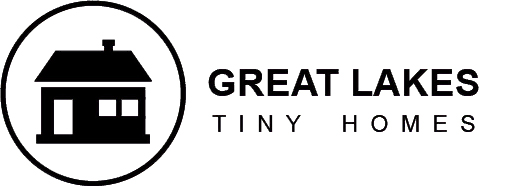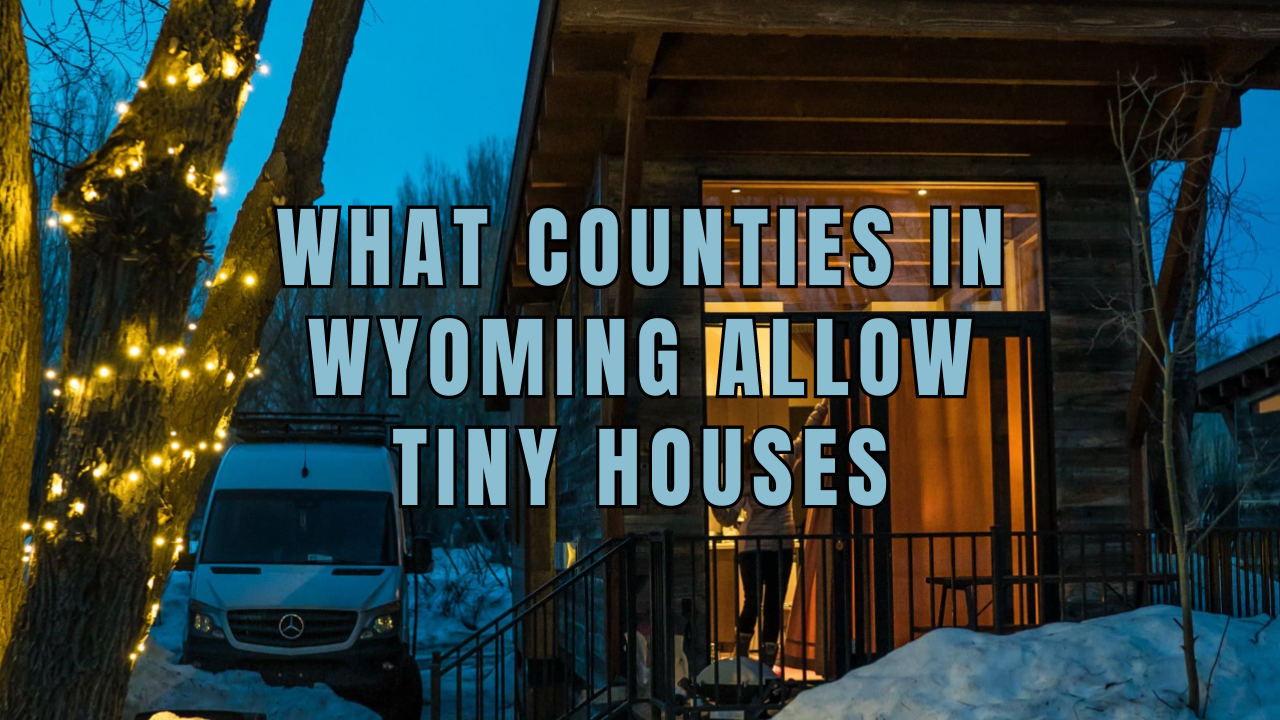As the tiny house movement continues to gain popularity, many individuals are seeking out the possibility of living in these small, minimalist dwellings before deciding to build or purchase a tiny house in SC.
Not all counties in South Carolina have the same zoning laws regarding tiny houses, so research and understand the specific requirements in your desired location. In this article, you will explore which counties in SC allow tiny houses, the rules and regulations you need to consider before moving, and the already-built tiny homes for sale.
South Carolina Tiny House Costs
You’ll need to know how much you can afford and which low-cost options are available for tiny homes before you start your tiny house trip.
We provide a solution that meets all needs and financial constraints, allowing you to start building your home. Visit the SC tiny homes for sale!
What Counties in South Carolina Allow Tiny Houses?
As long as they don’t conflict with state law, counties and municipalities adopt tiny home rules and regulations about safety, health, peace, and order. It’s probable that variables like neighborhood preferences, resource availability, and housing requirements locally impact the differences in small home regulations in South Carolina.
Furthermore, the growing acceptance of tiny dwellings in certain counties may be attributed to the increasing housing in SC.
Horry
Tiny houses in Horry County are single-family homes that are no larger than 750 square feet and no taller than 25 feet. They are part of the county’s multi-residential districts (MRDs).
Greenville
Tiny houses are subject to the same regulations as traditional homes, including zoning and building codes. The county requires that tiny houses be placed on a permanent foundation and meet minimum square footage requirements. Additionally, homeowners must obtain proper permits before building or parking a tiny house on their property.
Tiny House Regulations And Rules In South Carolina
South Carolina adopted the International Code Council’s tiny house construction guidelines. However, moveable vs fixed homes impose different building laws and restrictions.
Permanent Structure Rules
Permanent tiny homes in South Carolina follow the International Code Council’s construction guidelines. These buildings are regarded as permanent homes and are usually on a foundation. In Charleston, SC, accessory dwelling units, or ADUs, exist in all base zoning districts and are an example of permanent tiny houses.
- The tiny house and its foundation must comply with South Carolina’s Residential Code.
- They must have places to cook, sleep, use the bathroom, and live.
- There can be no more than 850 square feet of conditioned floor space overall.
- Each lot has a limit of one ADU, and the total number of homes on the property cannot exceed two.
- Short-term rentals are not allowed on the property. Both the primary residence and ADU require owner occupancy.
Temporary Structure Rules
In South Carolina, temporary tiny homes are frequently regulated by the same regulations as recreational vehicles (RVs) and are subject to special restrictions. Instead of having a fixed base, these dwellings are usually on wheels.
A legal place to live in a tiny house on wheels requires finding a parking space that is appropriate and allows residence. Mobile homes may often be parked and lived in at resorts and RV parks.
- Since they are temporary residences, the electrical supply system must be installed and inspected.
- It is required to establish a feeder for the power supply permanently. In addition, the park trailer can be fed with a feed assembly using a maximum 30-amp or 50-amp power supply wire with a properly secured cap.
- For safety reasons, plumbing and mechanical connections in temporary small homes should be temporarily linked instead of being made permanently.
- It is essential to keep the axles and wheels continuously connected.
Transitional Structure Rules
Transitional buildings provide a link between long-term and short-term housing. Transitional small houses work in South Carolina to help and shelter the state’s homeless population. For instance, in Greer, SC, Daily Bread Ministries proposed constructing tiny homes for the homeless as emergency shelters and transitional dwellings. However, zoning restrictions provide difficulties for these projects. As shown by the Greer Planning Commission’s denial of a request on zoning grounds, the city council may be able to overturn this ruling.
- Each of these houses would have around 192 square feet.
- Residents in counties that allow small homes may live in transitional buildings indefinitely, as long as they follow resident guidelines.
In South Carolina, Where Can I Build A Tiny House?
It is necessary to choose a comfortable location to call home. Choose a licensed small home builder to assist you with the job, do any paperwork, and ensure the home satisfies building codes.
Constructing a tiny house doesn’t have to be difficult if done correctly, even if it requires a lot of labor.
Tiny homes are frequently in the following locations:
- RV parks
- National Parks and campgrounds
- Tiny home communities
- Private properties
South Carolina Tiny House Communities
South Carolina offers a pleasant climate, unique outdoor experiences, and friendly southern hospitality. It makes sense that small-house communities are growing in popularity in SC with everything they offer.
Creek Walk
With low costs of $450 per month that cover all utilities (electricity, water, sewer, trash pickup, maintenance, property taxes, and even WiFi), Creek Walk offers tiny houses starting at $80. There’s always enough to do with the community garden, outdoor BBQ and grilling areas, fishing, walking and biking routes along the Swamp Rabbit Trail, and campfire pits.
West Oaks
West Oaks Village is a recently small home community in the center of Columbia, SC, only a short distance from the city’s major thoroughfare.
- The tiny homes in the neighborhood contain one or two bedrooms.
- A children’s play area and a dog park are some community facilities.
- Columbia has something for everyone, from a thriving music and arts scene to some of the most enlightening outdoor experiences.
Lake Walk Community
The Lake Walk Community in Greer is a vibrant cultural arts scene and a rich history in the shadow of the Blue Ridge Mountains. Furthermore, some factories and manufacturing companies, such as Michelin North America and BMW, reside there. A nature trail, a community dock, and green spaces make Lake Walk an excellent place to live and work. There are also many outdoor activities available.
Tiny House Builders Near Me
There’s no need to waste time looking for South Carolina tiny house builders to get your dream house because Great Lakes Tiny Homes offers a selection of small houses, sent anywhere in the nation.
Great Lakes Tiny Homes is a constructor accredited by the RV Industry Association (RVIA) that specializes in maintaining the highest production standards with the tightest safety, legal, and tiny house construction regulations.
Do I Need a Certified Builder?
Yes, you do!
Working with an RVIA-certified builder, such as Great Lakes Tiny Homes, guarantees that the tiny house you purchase is under applicable laws and regulations.
It also inspires trust in you since it guarantees the strength, longevity, and safety of the materials in your house.
Choosing an approved builder also simplifies the process of obtaining insurance and financing choices. Your tiny house promises to be a safe and livable space if it complies with RVIA standards.
FAQs
Can You Make a Tiny House in South Carolina Your Main Residence?
Yes, without a doubt! In South Carolina, it’s allowed to live in a little house full-time.
Depending on where you reside, local rules and ordinances might vary. To find out if the tiny house conforms with all applicable rules and regulations, including inspection requirements, speak with the local governments and zoning authorities.
Working with licensed builders in South Carolina enables you to live a more eco-friendly and laid-back lifestyle.
Does My South Carolina Tiny Home Require Me to Pay Property Taxes?
Generally speaking, tiny homes are free from property taxes. Still, there are minor variations from one state, county, and city to the next.
The legislation on property taxes and other associated taxes varies from state to state. The tiny house laws are clear regarding the types of tiny residences that are subject to certain taxes.
Tiny houses on wheels may be taxed as property in some areas if they are considered recreational vehicles. In other areas, taxes apply only after they are on a permanent foundation.
What Is the SC Minimum Square Footage Required for a House?
In South Carolina, there is no minimum size requirement for tiny homes. Tiny homes can have living spaces from 60 to 400 square feet and are transported and attached to a vehicle.
The size is more adjustable if you wish to build a small home on a foundation; it may be anything from 60 to less than 1000 square feet or the standard 500 square feet.
Likewise, A small home’s size will vary from county to county and based on the needs and tastes of the homeowner because local building ordinances and zoning regulations establish minimum dwelling sizes for some areas.
Conclusion
For people interested in tiny home living, SC has a variety of possibilities in some counties like Horry and Greenville County, including transitional, temporary, and permanent constructions.
Tiny houses are safe and adhere to contemporary construction requirements thanks to the state’s acceptance of the International Code Council’s building rules.
Nevertheless, to legally live in their small houses, potential homeowners must understand local zoning regulations and choose appropriate locations.





